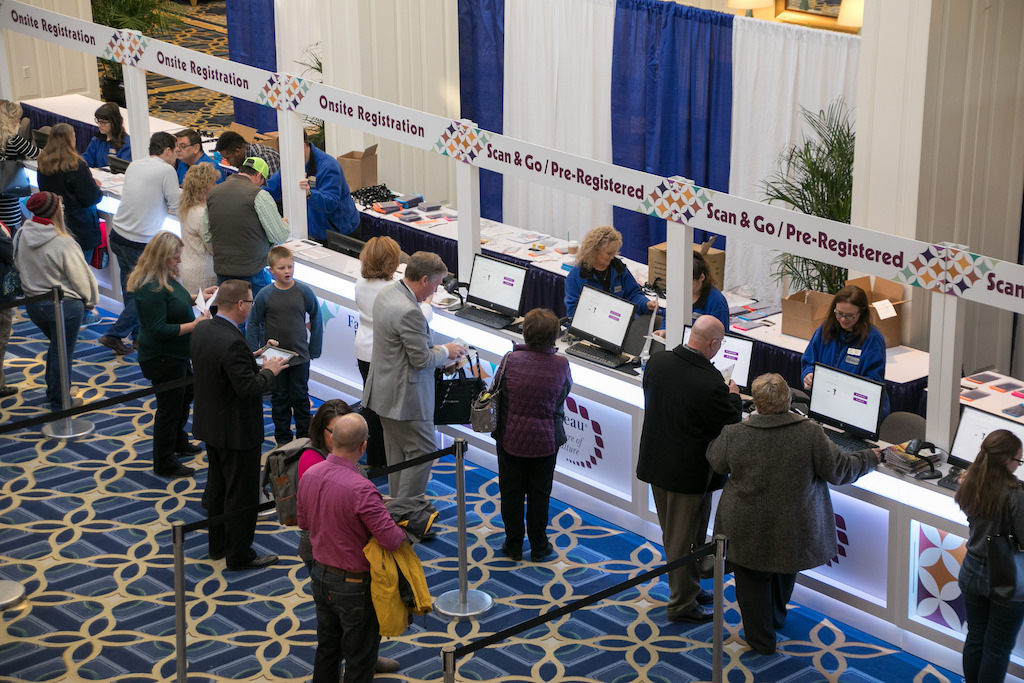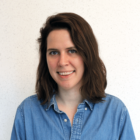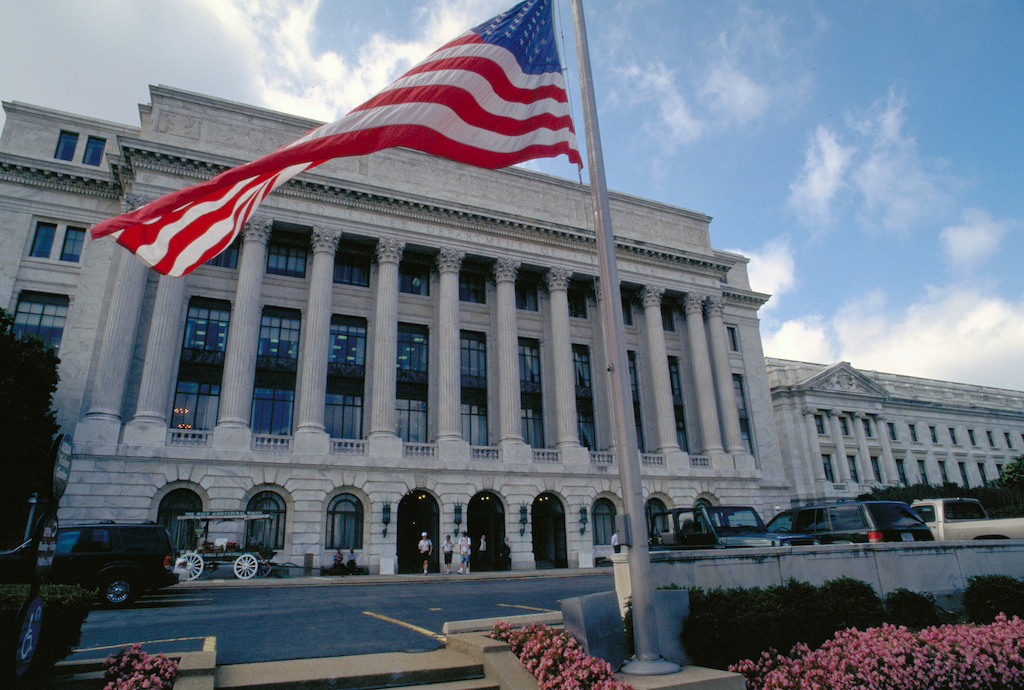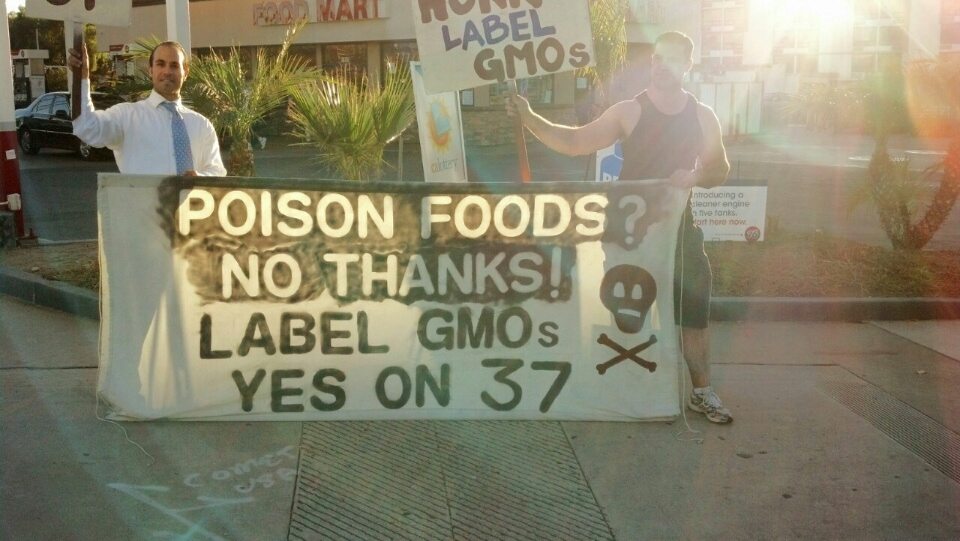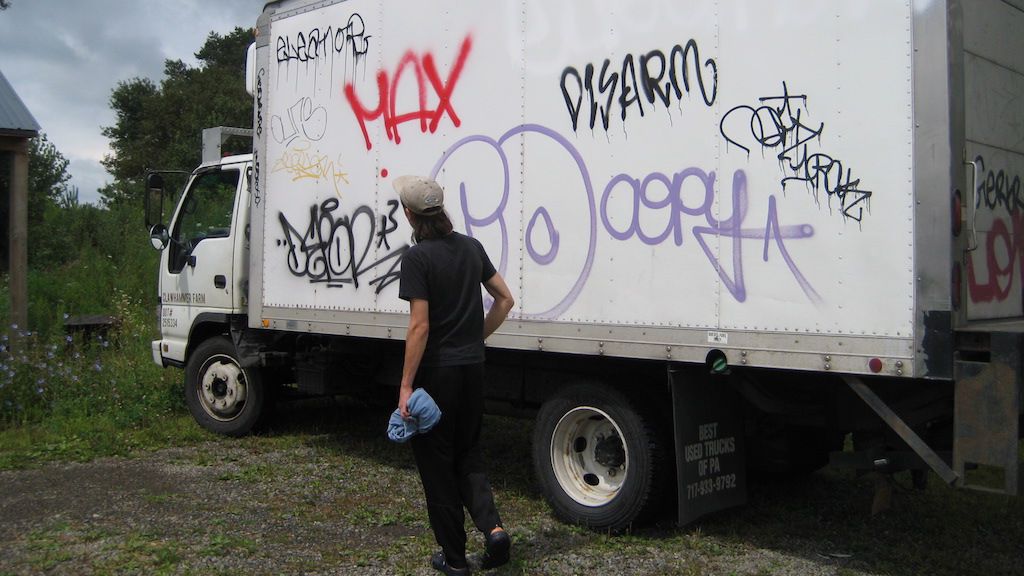At the annual convention of the American Farm Bureau Foundation on Sunday, controversial Canadian clinical psychologist and author, Dr. Jordan Peterson, held court in a fireside chat titled “The Danger of Allowing Ideologies to Grow Unopposed,” a discussion moderated by Monsanto’s director of millennial engagement, Vance Crowe.
As a moderately sized crowd filed into the conference room, Dr. Peterson appeared to be writing a powerpoint presentation on the fly. His cursor blinked on the large display as he typed the words “diversity,” “inclusivity,” “equity,” “white privilege,” and “gender” onto a slide.
Peterson, a professor of psychology at the University of Toronto, rose to prominence in Canada in late 2016 when he released a YouTube video series criticizing a university policy requiring the use of preferred pronouns for transgender people. He has been called “the belle of the alt-right” in the Canadian press. Peterson, who markets himself as a public-intellectual-slash-self-help-guru, makes about $40,000 per month from supporters through the crowdfunding platform Patreon. He says his audience is about 90 percent male.
At first glance, the decision to invite Peterson to the Farm Bureau conference seemed odd, given that other workshops in the same time slot included “DIY: How to Set Up a Retail Store” and “Crop Market & Farm Policy Outlook.” The Farm Bureau is far from apolitical—President Donald Trump will be speaking at the conference on Monday, and Farm Bureau president Zippy Duvall in his opening speech praised the current administration—but most of the other workshop sessions skewed more toward policy and practice than “unopposed ideology.”
But in a December post on LinkedIn, Monsanto’s Crowe outlined his rationale for setting up the chat: Peterson’s “fascinating observations about mythologies and the structure of human personalities” might shine light on the debate around genetically modified organisms in food, a highly contentious subject that has often caught Monsanto in its crosshairs. (Monsanto’s logo is printed on signs around the conference, and the company is listed as a $100,000-level supporter of the Farm Bureau.)
But Dr. Peterson didn’t really talk about biotechnology, nor did he critique “anti-science political ideologies being propagated in universities and among tax-supported environmental NGOs,” as Crowe promised on LinkedIn. Instead, he used his time with the farmers in the room to critique public universities—many of which are responsible for the biotechnology innovations that made a company like Monsanto successful in the first place. The discussion meandered so far from addressing “anti-science” sentiment that by the end of the 45-minute chat, Dr. Peterson appeared to tear up over the atrocities committed by Germany in the Holocaust.
“It was not quite what I expected,” said Billy Bishoff, a farmer from Maryland, after the talk. “I expected it to be a discussion of, say, some train of thought is generated on social media—that something is unsafe. How do you get out there ahead of that and try to isolate it? How do you wall it in and counter that thought before it grows until it does damage to our industry? So this was indeed a little bit outside the box.”
After a brief introduction by Crowe, Peterson launched into his bit. “There are strange things moving at the bottom of our society,” he said, after proclaiming his affinity for the agricultural community. “It’s necessary that you people who are hardworking and straightforward and productive and solid know about them. Because you need to know about them. Because they’re not good.”
Dr. Peterson wasn’t referencing the impact of social media’s rapid-fire mythmaking on civil discourse. Nor was he talking about the very-real-and-worthy-of-discussion chasm in the food industry between consumers who fear genetically modified foods and the farmers who grow them. In fact, he didn’t mention science or farming in his opening remarks at all, except to distinguish science from the humanities.
Rather, Peterson stuck with what he called “the basic story,” a hodgepodge belief system that says myths about group identity and power dynamics have spread far and wide, and the role of the individual has all but disappeared from modern society. For him, that trend has lead to “assaults” on the nuclear family and the idea of “man and woman.” Corrupt universities—and Women’s Studies departments in particular, he says—are responsible for turning students into activists who will one day tear apart the fabric of society. “The world runs on ideas. And the ideas that are in the universities are the ideas that are going to be in the general public in five to ten years. And there’s no shielding yourself from it,” he said.
Peterson also shared a trick for figuring out whether or not a child’s school has been affected by the coming crisis: If a schoolteacher uses any of the five words listed on his display screen—”diversity,” “inclusivity,” “equity,” “white privilege,” or “gender”—then a child has been “exposed.”
What’s Peterson’s solution for all this? “The answer to the ills that our society still obviously suffers from,” he said, is that “people should adopt an ethos of responsibility rather than continually clamoring about their rights, which is something that we’ve been talking about for about four decades too long, as far as I can surmise.”
Monsanto’s Vance Crowe, a smooth public speaker, had the unenviable task of moderating the discussion. “Well, Dr. Peterson, I have to say that’s probably the single most provocative speech I’ve heard at a Farm Bureau event in many years,” he said, which got a laugh from the audience.
Crowe’s first questions seemed like an effort to nudge Dr. Peterson into a discussion about food and farming. He asked about how farmers may be impacted by all this, and he asked about land grant universities (they’re in danger “of the same process that swamped the humanities,” Peterson replied). He pointed to the words on the slide and mentioned that many people in the room might be proud of efforts to improve diversity and inclusivity.
“There’s no evidence whatsoever that diversifying your workplace has a consequence of increasing the number of groups that are included, or constitutes an improvement in the diversity of thought. That’s an absolute fallacy,” Peterson interrupted. Crowe declined to comment immediately after the talk.
Later, Peterson careened between apparently denouncing equal rights advocates in one sentence (”It’s not happiness, it’s not rights, all that shallow idiocy that we’re being spoon-fed”) and imploring his audience to take care of others in the next (“How can you have any respect for yourself without taking on some of the burdens of the world?”), with little to no concern for the evident contradiction.
In his next breath, Peterson delivered the two sentences that were greeted with the most enthusiastic applause of the day. “Bearing up nobly under the burden of life [is] a much better alternative than turning to the blandishments of the far right and discovering your ‘white identity’ and joining the bloody neo-Nazis, or drifting off into the left where everything’s about resentment, victimization, and privilege and tearing down the damn system. It’s sickening, as far as I’m concerned, and it’s time that it comes to a stop.”
It was unclear whether Peterson won over his audience in the end. There were several moments, like the one above, that drew enthusiastic applause. But there were also moments, especially during the introduction, that didn’t seem to land quite so well—members of the audience shifted in their chairs and looked around the room. But Peterson certainly didn’t face any of the loud protesters he’s met regularly at appearances in Canada. After the talk, several people lined up to take selfies with him. I overheard one man tell Peterson “you have to talk to my daughter.”
Billy Bishoff, the farmer from Maryland, didn’t want to discuss Peterson’s talk as a whole, saying he needed more time to think about it all. But he said there were moments that did resonate with him. He lives in an area near a tourist attraction, and he says wealthy vacation home owners play an outsized role in driving local policy.
“Those folks come there and retire and they have money and they’re willing to participate on our community college foundation board,” he said. “Well, then they want to bring in their ideas, which include diversity and those words on the board. The way that mechanism actually plays out is we now have a significant population of students at our community college which are from urban areas. They’re being brought in there to play sports and are given scholarships to come out into our rural area, and they never really fit in. But the intellectual idea is that they’re teaching diversity to our local kids. And the local community is not having any of it.”
Bishoff agreed that Peterson’s statements about independence—what Bishoff calls the “yeoman spirit”—resonated with the audience as a whole. “I don’t know I completely buy into what Dr. Peterson is saying, or the mechanism he’s advocating,” Bishoff said. “But the end result is certainly showing up, and that’s a polarity in our society. And that is, I think, extremely worrying.”
